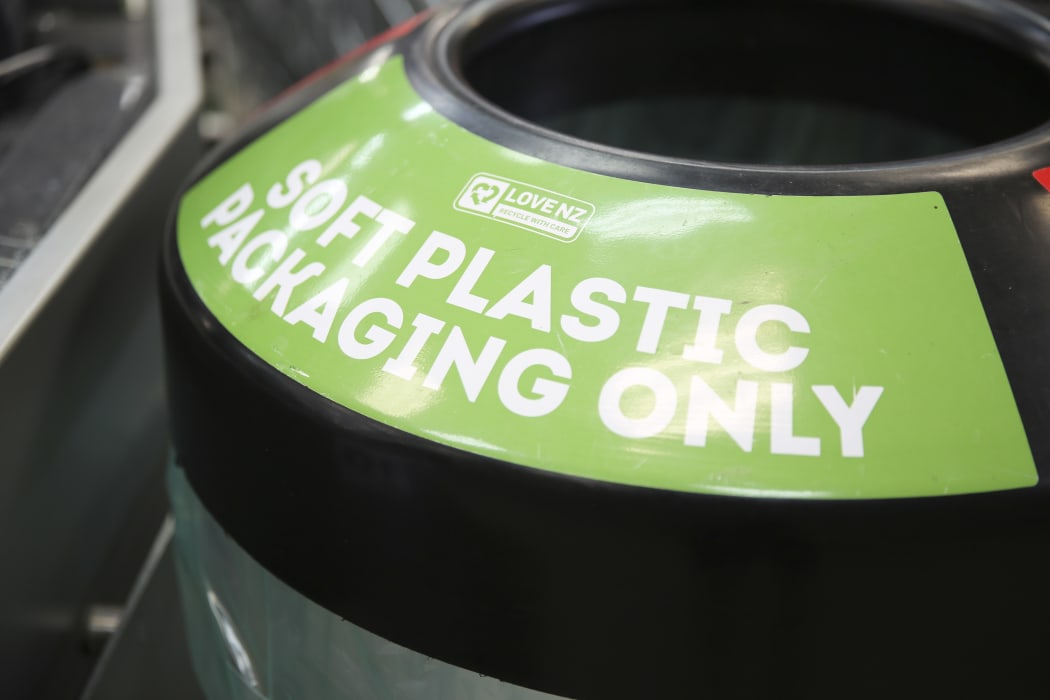Some materials in a stockpile are being turned into fence posts and ducting for cables for sale to local consumers.
For the first time, soft plastic collected for recycling is being processed in New Zealand, and turned into fence posts and ducting for cables.

Photo: RNZ / Richard Tindiller
Earlier this year, soft plastic such as bread bags, chip packets and confectionery wrappers, was being stockpiled here, as the Australian plant which had been contracted to recycle it, refused to take any more.
The Soft Plastic Recycling Scheme, run by the Packaging Forum, is working with Future Post which has begun manufacturing fence posts made from a mix of soft plastics and milk bottles. Future Post has teamed up with Fonterra as part of the initiative.
Lyn Mayes from the Soft Plastic Recycling Scheme, run by the Packaging Forum, said Future Post could use between 2000 and 12,000 plastic bags for one fence post.
"We've been very focused on creating a supply chain and working with partners to create demand here and that's incumbent on all of us really, whether we're an industry or government, to support local processors."
She said the scheme was also working with wineries, which were recycling glass bottles, and that provided an opportunity to create the circular economy. Members were selling products in packaging and they could also buy the fence posts.
Another company, Second Life Plastics in Levin, was using soft plastic from the Wellington region to manufacture ducting for cables and the company was also looking at opportunities to supply garden fencing.
Ms Mayes said the scheme was also working with its retailer members, such as The Warehouse and Mitre 10, which would be encouraged to sell the recycled products.
Around 600 tonnes of soft plastics has been collected from supermarkets so far this year.
The Soft Plastic Recycling Scheme was working with its members to come up with other New Zealand recycling solutions now that China and Australia will no longer take the material, she said.

